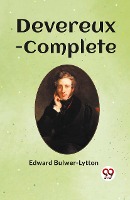Edward Bulwer-Lytton "Devereux: Complete" is an absorbing historical fiction set inside the risky political panorama of 17th-century England. The story concentrates around the bold protagonist, William Devereux, and gives a sweeping chronicle of romance, intrigue, and political maneuvering. As Devereux navigates the perilous seas of courtly existence, readers are transported to an international fraught with moving alliances, electricity conflicts, and personal vendettas. Bulwer-Lytton's rigorous interest to historic element brings the characters and surroundings to lifestyles, presenting a vivid depiction of the manners, traditions, and political complexity of the time. The tale investigates no longer simplest Devereux's personal connections and aims, however additionally the larger ancient surroundings, which include Queen Anne's turbulent reign. The story unfolds thru a complex tapestry of personalities, each including to the complex internet of situations that determine Devereux's destiny. Edward Bulwer-Lytton's storytelling prowess shines through in "Devereux: Complete," which tells an interesting and multidimensional tale. The tale expertly blends historical fact with a riveting plot, giving readers a fascinating peek into the passions, ambitions, and struggles of a bygone technology. "Devereux: Complete" exemplifies Bulwer-Lytton's capability to weave ancient drama with timeless topics, making it a compelling examine for anybody inquisitive about both history and the intricacies of the human revel in.

